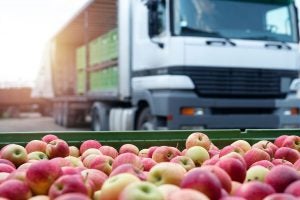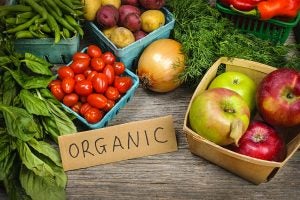A full-scale organic regulations overhaul has been a long time coming. And finally, it seems to be here … at least on paper. The U.S. Department of Agriculture has just unveiled its Strengthening Organic Enforcement rule, which it hopes will “protect organic integrity and bolster farmer and consumer confidence in the USDA organic seal.”
As I read through all of the things this new rule is supposed to do — from strengthening certification of organic imports to more rigorous domestic on-site inspections and better data reporting — I couldn’t help but wonder what all those organic activists think now that the USDA has basically admitted that the system they championed has been deeply flawed.
Despite the reality of what the organic label has meant, the public perception of organics is strong. That little green and white label evokes images of sustainability and happy farmers and airy fields where cattle graze. It’s touted by advocates to be healthier food that provides supreme nourishment for our bodies.
But it’s a promise that doesn’t live up to the hype. We know that organic food isn’t any healthier than conventionally grown food. Good farmers aren’t limited to one type of production. Farm animals receive top-notch care across the spectrum. And sustainability is more complex than a label.

I’m happy that the USDA (finally) acknowledged that a lot of products marketed as organic aren’t grown in compliance with program requirements. It hurts everyone in food production when fakes are billed as the real thing.
The USDA’s crackdown on organic fraud is supposed to happen by strengthening oversight from the farm, through the supply chain, and maybe to your table. The organic industry will have one year from the rules’ effective date to comply with the enforcement. Mainstream media have been salivating at the news, especially folks at The Washington Post, which shares an owner with organic food purveyor Whole Foods. The outlet was quick to “report” how “government standards require that products bearing the organic label are produced without the use of toxic and persistent pesticides” (ouch … do we really need to go over the thousands of branded organic pesticides yet again) and how the organic label is allowed “only for products that meet certain standards for soil quality” and other components (sorry to break it to that writer, but soil health plays no role whatsoever in whether a farm is organic or not).
It’s because these myths from the previous organic system have lingering and been promoted by organic stakeholders like The Washington Post that a tightening of the organic regulations is important. The USDA says its new approach will support organic control systems, improve farm to market traceability, increase import oversight, and actually enforce the organic regulations.
Yet even the organic program’s proponents admit that the USDA’s enforcement of these regulations is long overdue. The Organic Trade Association was a lead lobbyist for the changes. Tom Chapman, who heads the group, said it is the largest change in the program since it’s inception, and will help “boost confidence” in the label.

Frankly, I’m just happy that we’re finally acknowledging that the organic label isn’t as sacred and unblemished as its proponents have long wanted us to believe. Does this mean we can start having an honest conversation about how silly all of this is? According to Statista, the U.S. market for organic products was at $57.5 billion, making up about 4 percent of food purchases, compared with $13.26 billion, a 2.5 percent share, in 2005. As former USDA Secretary Dan Glickman said, the organic label is about marketing. It has nothing to do with nutrition, safety, sustainability, or profitability. Heck, it’s even run by the USDA’s Agricultural Marketing Service.
Unfortunately, I’m confident we haven’t reached that pinnacle, especially because now we’re going to double down on oversight. Wouldn’t it make more sense to instead focus on researching and implementing best production practices for each unique geographic area and farm?
Amanda Zaluckyj blogs under the name The Farmer’s Daughter USA. Her goal is to promote farmers and tackle the misinformation swirling around the U.S. food industry.



